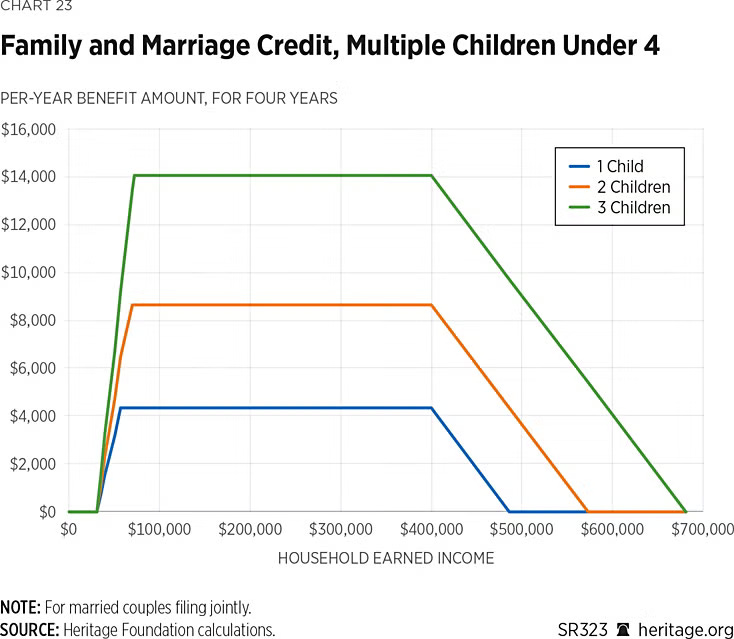The Opinionated Ogre is a Stay-at-Home parent first, foul-mouthed hater of fascist Republicans second. He’s been making the most horrible people in the country miserable for 15 years and the hate he feels for American Nazis is eternal and without limits. He plans to stop torturing right-wing trash the day the last fascist dies. So, you know, never. Please help support this potty-mouthed newsletter for just $5/month or $50/year (Almost 17% less!)
I’m going to restrain myself and not point a flamethrower at Never Trumper Tom Nichols today. While his Atlantic article, “The Republican Party Has a Nazi Problem,” conveniently absolves him of any personal responsibility for the state of the modern GOP, Nichols does not pretend Trump is The Thing That Went Wrong with his party. Just as importantly, he resists the urge to both sides the problem.
Be still, my fluttering heart. Are the Never Trumpers…learning?
It’s important to understand that, for Never Trumpers, generally speaking, everything was Just Fine prior to 2016. It was only after Trump showed up that Things Went Wrong. That, of course, is bullshit. The Republican Party has been speeding towards this exact disaster for decades. We all saw what was happening. Most refused to acknowledge it.
I guess hindsight is a little clearer sometimes, even for a Never Trumper:
A few years later, Representative Newt Gingrich of Georgia carried [Pat] Buchanan’s culture war into the House speakership. For Gingrich, politics was solely about winning; his scorched-earth approach treated opponents as enemies and compromise as treason. He wanted votes, and wasn’t concerned about who was animated by his viciousness.
Gingrich was eventually driven from the speakership; Buchanan left the Republican Party to run under the Reform Party, and then faded from public life. But an example had been set of welcoming extremism (extreme ideology, extreme tactics) for the sake of winning.
Nichols, at this time, was very much a part of this fire-breathing hate machine. He was more professional about it, of course, but he was not interested in honest intellectual discourse. But I’m going to put that aside because, for once, he is accurately assessing WTF is wrong with the GOP. He doesn’t pretend Trump is the toxin that made Republicans into monsters.
Here, he does something very important, he goes back much further than even Gingrich, who really did teach the American right to talk about the left as an irredeemable evil, and Buchanan, whose white Christian Nationalism is everything we are seeing play out in real time today. Here, Nichols goes back to when the Republican Party explicitly embraced racism as a tactic:
For Stevens, racism is the original sin of the modern Republican Party. White voters were alienated by the passage of the Civil Rights Act in 1964 and the violence around the 1968 Democratic primaries. As Black voters deserted Republicans, the segregationist George Wallace proved with his ’68 presidential run that white southerners were up for grabs. Richard Nixon made a cunning and cynical calculation to sweep up those disaffected white voters, using appeals to “law and order” to stoke racial anxiety. By the 1970s, the GOP was the de facto white party in the United States.
The number of Never-Trumpers willing to say that out loud can be counted on one hand. The number of “journalists” whose job is to accurately report reality who would also say it out loud is just as small.
America has gone to great lengths to avoid the truth: The Republican Party deliberately remade itself into the party of racist white men.
Did you know the Opinionated Ogre has a weekly podcast? It’s true! New episodes every Thursday! Catch the latest episode here:
Now, Nichols does something that almost made me spittake on my monitor. Not only does he, more or less, accurately describe why the Republican Party became a racist shithole and who did it, he takes it a step further and explains the mechanism that allowed extremism to murder the GOP and put the entire world at risk:1
Nixon and Reagan held racist views, as did many men of their generation. (Nixon was also an anti-Semite.) But they did not govern as racists, and they certainly weren’t Nazis; neither was Gingrich, Buchanan, or any national Republican over the past half century. But years of racial pandering had created a too-big tent, enlarged in the name of electoral expediency, that offered dark corners for despicable ideologies.
Political realignment also made the GOP vulnerable to extremism. Democrats became appealing to wealthy suburbanites. Republicans, whose voters were now less educated and more working-class, gained among white voters in rural areas and the Rust Belt. Gerrymandering helped turn red districts redder and blue districts bluer. Democrats’ more diverse constituencies were a built-in trip wire against politicians who cozied up to extremists, while Republican-primary candidates—influenced by the rise of talk radio, Fox News, and the Tea Party—were not subjected to serious moderate challengers. Unprincipled and bizarre candidates could now thread a path to victory in ruby-red districts.
Please put aside the obvious lie that Nixon and Reagan did not govern as racists. The War on Drugs was designed explicitly by Nixon to crush Black communities, and Reagan was openly hostile to Black voters. But, I’m taking a deep breath and moving on because, holy shit, to hear the rest of this from a (temporarily misplaced)2 Republican is jaw-dropping.
They simply do not admit to this. Ever. Republicans do not ever EVER look in the mirror and say, “Yeah, we let the crazed lunatics in the tent. Everything we did for the last 50 years, the gerrymandering, creating our own media bubble, sneering at the educated voter, all of it, created a party that could only lead us to this dead end.” It’s a brutal self-assessment.
To my eternal surprise, Nichols even manages to NOT do the one thing Republicans are almost genetically conditioned to do when criticizing their own party. He does not engage in bothsiderism. He does the exact opposite, you’ll notice. While explaining how the GOP turning itself into a party for white people made them vulnerable, like a monoculture crop is vulnerable to disease, Nichols points out how the Democratic Party’s diversity makes it far more immune to extremism.3
Nichols really hammers this point home:
Conservatives will complain that Democratic Party leaders have often tolerated their own extremists. People on the right point to radical professors lionizing Angela Davis, a Communist Party figure who was once on the FBI’s most-wanted list, or a future president socializing with Bill Ayers, who co-founded a Marxist militant organization and participated in bombings of the U.S. Capitol and the New York Police Department headquarters. Ayers may have casually socialized with a 30-something Barack Obama, but he did not get an office in the West Wing 15 years later. And no one on the left has shown up to work dressed like a conquering Nazi general swanning through the streets of Smolensk, the way Bovino did in the Midwest.
If he were being less polite, Nichols would have said, “Fuck your both sides bullshit.” But he’s writing for the Atlantic, and he’s not a foul-mouthed ogre. Still, that is what he’s saying. On our worst day, our most extreme elements are still a far cry from what we are seeing in the Republican Party. Radical socialists want insane things like Universal Healthcare. Universal Basic Income. An end to homelessness. Fully-funded schools. My god…the fucking horror of it all.
But to the hate-soaked brain of most Republicans, UHC is somehow no different than murdering 100 million people for not being white enough. I guess we’ll have to agree to disagree.4
It’s really important, ugh, I can’t believe I’m saying this, to pay attention to what Tom Nichols is saying in this article. He is not soft-selling the problem. He is not downplaying what is happening to the GOP. He is not pretending it’s just a tiny fringe that will go away if we close our eyes and wish upon a star. The Republican Party has a Nazi problem. Which means, as Nichols points out, America has a Nazi problem.
I’ve written about this more than once, and it’s good to know that I’m not shouting in the wilderness for a change. The GOP has turned itself into a party uniquely vulnerable to extremism. Now it has no off-ramp. There is no way to escape the death spiral it is in. Trump was an accelerant, but it started down this path long before I was born.
When the regime falls, and it will fall, the party will flail about for a bit and do what it has done each and every single time after a defeat: Lurch to the right. But since it’s already a party of white Christian Nationalism, there is no place left to go but to full-blown Nazism. One gets the sense the Nazis understand this lurch is coming, which is why they’re already sliming their way into the GOP.
This is going to happen. We are going to have to deal with an American Nazi Party and a legacy press trying to gaslight us into believing they are legitimate instead of genocidal monsters to be beaten to the ground on sight. If you don’t believe me, well, listen to a Republican telling you exactly the same thing. What are you going to do? Call Tom Nichols a hysterical libtard?
Good luck selling that to the crowd, buddy.
I hope you feel better informed about the world and ready to kick fascists in the teeth to protect it. This newsletter exists because of you, so please consider becoming a supporting subscriber today for only $5 a month or just $50 a year (a 17% discount!). Thank you for everything!
There are 249 days until the most important midterm election in American history. The regime is afraid, and they should be. We are legion, and they are weak. Stay strong. You are never alone.
Self-aggrandizing? Maybe. But can you honestly look around at the damage the regime is doing and not think we are putting the entire world in jeopardy?
I firmly believe that Nichols will run right back to the GOP 5 seconds after Trump is dead, looking to retake control of the party from the people who took it from him.
It’s amused me greatly over the years to watch the alt-left declare how they were going to “take over” the party without doing the work, only to see them crushed in the primaries. Meanwhile, real progressives who put in the time rise and move the party to the left. The alt-left hates those people. Ha. Ha. Ha.
Actually, no. You’re wrong, go fuck yourself, and then swallow a bullet






